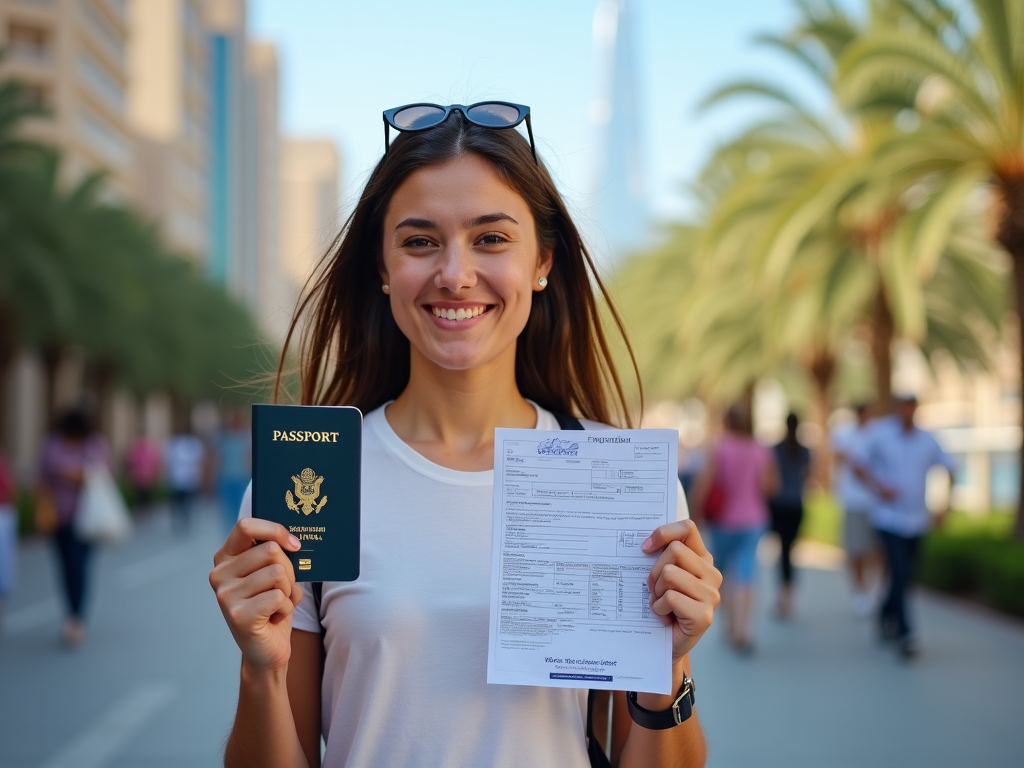
Expert Tips for a Successful Dubai Residence Visa Application
Applying for a Dubai residence visa can seem daunting, but with the right guidance and resources, you can streamline the process and enhance your chances of success. This article aims to provide expert tips on navigating the application procedure, successfully submitting required documents, and avoiding common pitfalls that applicants often face. Whether you’re relocating for work, study, or family reasons, understanding the nuances of the Dubai residence visa application will help facilitate a smooth transition.
Understanding the Types of Dubai Residence Visas

Before diving into the application process, it’s essential to understand the different types of residence visas available in Dubai. Each visa type has specific requirements, duration, and purpose, tailored to various situations. Here are some common types:
- Employment Visa: Obtained through a sponsorship from a Dubai-based employer, valid for up to three years.
- Investor Visa: For those investing in real estate or starting a business in Dubai.
- Family Visa: Issued to spouses, children, or dependents of Dubai residents and expats.
- Student Visa: For individuals studying at accredited educational institutions in the UAE.
- Retirement Visa: For retirees aged above 55, who meet specific financial requirements.
Knowing the right type of visa that suits your needs is crucial before starting the application process. Each visa has its advantages, and understanding these will help you to prepare your application accurately.
Gathering Necessary Documents

One of the most critical steps in applying for a Dubai residence visa is gathering all necessary documents. Incomplete applications can result in delays or outright rejection. Here’s a checklist of essential documents needed:
- Valid passport (with at least six months’ validity).
- Passport-sized photographs as per UAE specifications.
- Application form (completed and signed).
- Proof of employment or sponsorship (e.g. employment contract).
- Medical fitness certificate from an approved clinic.
- Proof of accommodation (e.g. rental agreement or property ownership).
Make sure to keep copies of all documents, as you may need them throughout the visa process. Knowing exactly what documentation is needed will save you time and stress during the application phase.
Once you have all the required documents, the next step is to submit your application through the appropriate channels. The application can usually be submitted online or in-person, depending on the type of application. Here’s a general outline of the application process:
- Fill out the visa application form accurately and review it to avoid mistakes.
- Submit the necessary documents along with the application and pay the processing fee.
- Attend a medical examination at an approved health center if required.
- Wait for application processing which can take anywhere from a few days to several weeks.
Be proactive with follow-ups, as this can expedite your application process. Additionally, stay informed about any changes in visa regulations or processing times, as these can vary widely.
Avoiding Common Pitfalls
Many applicants make avoidable mistakes that lead to delays or rejections of their residency visa applications. Understanding these common pitfalls can help you prepare better. Here are some key aspects to pay attention to:
- Incomplete Documentation: Double-check that you have gathered all required documents.
- Wrong Visa Type: Ensure you apply for the correct visa type based on your situation.
- Spelling Errors: Ensure all names and details are accurately filled in.
- Missing Medical Tests: Familiarize yourself with required medical examinations, as this is a mandatory step.
- Ignoring Updates: Keep yourself updated on any changes in immigration laws.
By recognizing these common issues, you can approach your application with greater confidence and lower the risk of complications.
Conclusion
Applying for a Dubai residence visa does not have to be a stressful experience. By understanding the types of visas, gathering necessary documents, following the right application process, and avoiding common pitfalls, you can significantly enhance your chances of securing a visa successfully. Patience and preparation are key attributes that will aid in your quest to settle in this vibrant city.
Frequently Asked Questions
1. How long does the Dubai residence visa application process take?
The processing time can range from a few days to a few weeks, depending on various factors including the accuracy of your application and the type of visa you are applying for.
2. Can I apply for a residence visa if I am self-employed?
Yes, self-employed individuals can apply for an investor visa by proving they have a registered business in Dubai and fulfilling the required financial criteria.
3. Is there an age limit to apply for a Dubai residence visa?
There is no specific age limit for most residence visas, but certain types, like the retirement visa, have an age requirement of 55 years or older.
4. What should I do if my application gets rejected?
If your application is rejected, you can request a detailed explanation from the authorities and address any issues before reapplying.
5. Can I sponsor my parents for a residence visa in Dubai?
Yes, residents can sponsor their parents for a long-term residence visa, provided they meet the financial and housing requirements set by the UAE government.
